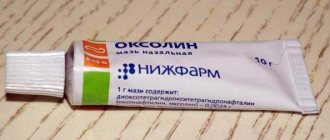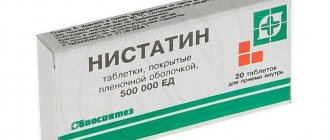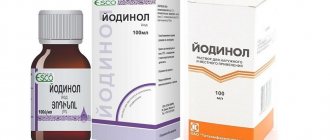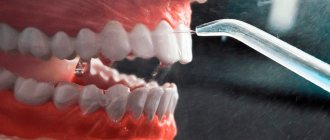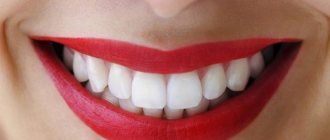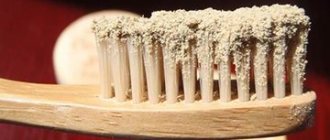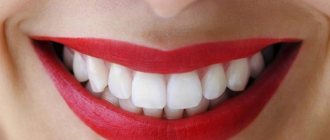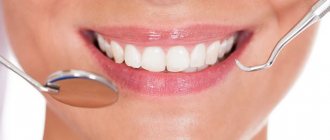Hexoral for stomatitis is one of the most effective drugs. It has a wide spectrum of action, therefore it is approved for both fungal and herpetic stomatitis. Self-medication for stomatitis is not recommended, since this disease develops rapidly and is fraught with dangerous complications. Hexoral cannot be used uncontrollably; the active components can cause side effects.
Anatomy of the larynx
The larynx is a complex organ, which is a complex of various tissue structures with a developed network of blood, lymphatic vessels and nerves.
The larynx is a hollow air-carrying organ, which is given rigidity by cartilage. The larynx opens from above into the laryngopharynx, and from below it passes into the trachea.
Inside, the larynx is covered with a thin mucous membrane of cylindrical ciliated epithelium, and in places of mechanical load (epiglottis, posterior wall of the larynx, free edges of the vocal folds) with more durable stratified squamous epithelium.
The skeleton of the larynx consists of 5 main cartilages:
- three unpaired (cricoid, thyroid and epiglottis);
- two paired (arytenoid cartilages);
The vocal folds are two muscular-ligamentous cords of a whitish-pearl-colored color.3
The larynx provides a number of important functions:
- respiratory
- phonatory (voice)
- protective
- cough
- expectorant
- speech-forming (it is based on respiratory and vocal functions)
Kamistad gel
“Kamistad gel” for stomatitis perfectly anesthetizes the mucous membrane with stomatitis and any damage in the mouth. The active ingredients of this product are lidocaine hydrochloride and chamomile flower extract. “Kamistad gel” helps to relieve pain and inflammation for a long time, and heals wounds on the mucous membrane. This drug is conveniently distributed, and the discomfort goes away almost immediately after application. If you strictly follow the instructions, there will be no adverse reactions. Before applying Kamistad Gel, the affected areas of the mucous membrane must be dried from saliva.
Kamistad-gel N
STADA Arzneimittel, Spain
The combined drug Kamistad gel N. Lidocaine has a local anesthetic effect, which helps to quickly and lastingly reduce pain due to inflammation and damage to the mucous membrane of the oral cavity and gums.
Chamomile flower extract has anti-inflammatory, antiseptic and regenerating properties. from 217
5.0 1 review
319
- Like
- Write a review
Causes of laryngitis
| CAUSES | A COMMENT | ||
| causes: | Infections | a comment: | The cause of acute laryngitis can be an infection that penetrates the mucous membrane of the pharynx and larynx and is easily activated against the background of a decrease in general and local immunity. The main causative agents of acute and chronic laryngitis include mainly streptococci and staphylococci, which can be activated under the influence of unfavorable factors. |
| causes: | Non-infectious causes | a comment: | — smoking and alcohol — chemical and thermal burns of the larynx — allergies — severe vocal strain |
Risk factors for developing acute laryngitis:
- decreased immunity
- general and local hypothermia
- diseases of the pharynx and paranasal sinuses
- influence of bad habits
Acute inflammation of the mucous membrane of the larynx may be a consequence of catarrhal inflammation of the nasal mucosa, paranasal sinuses (sinusitis) or pharynx (tonsillitis, pharyngitis).
Acute laryngitis develops against the background of viruses:
- ARVI
- influenza A, B, and C viruses
- parainfluenza
- adenovirus infection4
Among bacteria, common causative agents of acute laryngitis are:
- Haemophilus influenzae (H. Influenzae)
- chlamydia pneumoniae
- Moraxella catarrhalis
- pneumococcus (S. pneumoniae)5
Lidocaine Asept
An excellent remedy for stomatitis pain relief, it is one of the most powerful. "Lidocaine Asept" blocks nerve impulses in tissues, affecting the cell membrane - the pain disappears in just a few seconds. Since the drug is too strong, it is not suitable for children. In addition to lidocaine, this product contains chlorhexidine to fight microbes - it destroys fungus, bacteria, and yeast. “Lidocaine Asept” for stomatitis is convenient to apply pointwise to painful areas of the mucous membrane - the drug does not “freeze” the entire mouth, but only those places where the product is applied.
Lidocaine Asept
JSC NPC "Biogen", Russia
Lidocaine-Asept spray for topical use has a local anesthetic and antiseptic effect and causes terminal anesthesia.
from 240
5.0 1 review
375
- Like
- Write a review
Classification of acute laryngitis
Catarrhal laryngitis
The most common form of the disease. Acute laryngitis is characterized by catarrhal inflammation of the laryngeal mucosa without signs of stenosis. Catarrhal laryngitis is the simplest form of laryngitis, which is treated on an outpatient basis
Edema laryngitis
Characterized by swelling of the mucous and submucosal layer of the larynx. Clinical manifestations of edematous laryngitis depend on the size of the edema. The causes are angio-neurotic (Quincke's edema) and allergic.
Phlegmous laryngitis (abscess)
Acute laryngitis with the formation of an abscess in the area of the epiglottis or aryepiglottic folds.
Diagnosis of aphthous stomatitis
The basis for diagnosing a disease is collecting information from the patient and assessing the pattern of symptoms.
In order to correctly diagnose the disease and, as a result, prescribe effective treatment, the doctor must know how long ago the first manifestations of the disease appeared, whether they have occurred before or this is the first time, and whether there are signs of allergies.
If in doubt, a swab is taken from the oral cavity, which helps to identify the causative agent of the infection and select the most appropriate treatment tactics.
Symptoms of acute laryngitis
With the catarrhal form of laryngitis, the following complaints are observed:
- a sore throat
- sore throat
- hoarseness, hoarseness, loss of voice
- dry or wet cough
- difficulty breathing when inhaling
- dyspnea
- deterioration in general health, headache, weakness
- increase in body temperature to 37.1-38.06
Symptoms of laryngitis in phlegmonous (asbestos) form::
- difficulty swallowing
- dyspnea
- febrile temperature (38-39 degrees) reflects the addition of inflammation or the transition of catarrhal inflammation of the larynx to phlegmonous
- there is increasing symptomatology of laryngeal stenosis
Acute respiratory failure with laryngitis
The severity of clinical manifestations is directly related to the severity of inflammatory changes.
The main symptom of acute respiratory failure is shortness of breath. The following degrees are distinguished depending on severity:
- I degree of respiratory failure – shortness of breath that occurs during physical exertion.
- II degree – shortness of breath that occurs with little physical activity (slow walking, washing, dressing).
- III degree – shortness of breath at rest.7
Contraindications and side effects
Hexoral is extremely rarely prescribed to children under 3 years of age. The drug is contraindicated for people with hypersensitivity to the components. If you are prone to allergies, you should use Hexoral therapy with caution.
Possible side effects:
- nausea and vomiting;
- convulsions;
- breathing problems;
- dysfunction of the cardiovascular system;
- change in taste perception;
- numbness of the oral cavity;
- change in tooth color.
Overdoses of Hexoral occur extremely rarely. If a child swallows the drug and experiences nausea and vomiting, contact a medical facility immediately. Before arriving at the hospital, you can give your child activated charcoal.
Clinical picture of acute laryngitis upon examination
The main method for diagnosing laryngitis is instrumental and endoscopic laryngoscopy.
For catarrhal laryngitis:
- the mucous membrane of the larynx is red and swollen
- vocal folds are pink or bright red, thickened, mobile, do not close completely
- mucous or mucopurulent secretions may accumulate, which can cause a wet cough
Depending on the form of acute laryngitis, swelling and hyperemia (red mucous), the size of the epiglottis, and narrowing of the lumen of the larynx can be expressed in different ways.
In the complicated (abscessing) form, a spherical formation with translucent purulent contents is determined in the area of the epiglottis.
With stenosis of the larynx, a narrowing of its lumen occurs.
Overdose
When the solution is swallowed, vomiting often occurs, which helps to get rid of toxic substances. That is why an overdose of Hexoral rarely occurs. If a large amount of the product gets into the stomach, you need to rinse it. If a child has swallowed a lot of Hexoral, rinsing is vital, since due to the high concentration of ethyl alcohol, the baby may experience severe alcohol poisoning.
Caution should also be exercised when using tablets and lozenges. Despite the pleasant taste and relative safety, Hexoral in tablet form is a medicine. Even lollipops cannot be used if you have a severe allergy to the components.
In case of overdose, benzocaine, which is part of Hexoral lozenges, can cause tremors, convulsions, vomiting and breathing problems. Sometimes patients' heart rate slows down, and in severe cases, atrioventricular block and even cardiac arrest occur.
Laryngeal stenosis
According to the clinical course and size of the airway lumen, four degrees of laryngeal stenosis are distinguished:8
- Stage of compensation - the lumen of the glottis is 6-8 mm or the narrowing of the tracheal lumen by 1/3
- Stage of subcompensation - glottis 3-4 mm, tracheal lumen narrowed by ½ or more
- Stage of decompensation - glottis 2-3 mm, slit-like lumen of the trachea
- Asphyxia - glottis and/or tracheal lumen 1 mm
!A thorough examination of the larynx can only be performed by an otorhinolaryngologist. The patient cannot independently examine himself and assess the severity of the condition.
Solcoseryl dental adhesive paste
It is considered one of the best drugs for the treatment of stomatitis, improves tissue nutrition. The active substance of Solcoseryl ointment - hemodialysate - heals ulcers, wounds, abrasions and scratches. “Solcoseryl” well stimulates the regeneration processes of the oral mucosa, disinfects, and restores cells. But you need to take into account that Solcoseryl is not an antiseptic, so before applying this paste for stomatitis, you need to rinse your mouth, for example, with Chlorhexidine. The drug has no contraindications other than individual intolerance.
Solcoseryl dental adhesive paste
Meda Pharma, Switzerland
Wound healing, angioprotective, membrane stabilizing, regenerating, cytoprotective, antihypoxic drug, which is available in the form of an injection solution, gel and ointment for external use.
from 172
1.0 1 review
1220
- Like
- Write a review
Treatment of acute laryngitis 9
Treatment of acute laryngitis requires an integrated approach.
Antibacterial therapy
Antibacterial therapy is not required for patients with mild forms of laryngitis. In case of severe inflammatory phenomena, with complicated forms of acute laryngitis, with the development of an abscess, as well as with exacerbations of chronic laryngitis, broad-spectrum antibacterial drugs (amoxicillin/clavulanic acid, cephalosporins of III–IV generations) or respiratory fluoroquinolones are prescribed.
Symptomatic therapy
Includes taking antipyretic and painkillers.
Inhalation therapy
Indicated for patients with any form of laryngitis, including abscesses.
Inhalations can be used as monotherapy for uncomplicated forms of laryngitis, as a symptomatic treatment to moisturize the laryngeal mucosa, and also in combination with other treatment methods for inflammatory diseases of the larynx.
In inhalation form, drugs are used that have antibacterial, antifungal, decongestant, mucolytic, anti-inflammatory effects, as well as the ability to moisturize the mucous membrane.
The main advantage of inhalations is the ability to achieve a quick and effective therapeutic effect using a small dose of the drug with a significant reduction in the negative systemic effect. During inhalation, drugs are rapidly absorbed. A high concentration of the drug is created directly at the site of inflammation.
Antihistamines
Prescribed for allergic forms of acute laryngitis.
Anti-edematous and anti-inflammatory therapy
Antifungal drugs are prescribed when a fungal infection is diagnosed.
Mucolytic drugs
Other treatment recommendations:
- vocal rest - it is recommended to talk as little as possible, avoid shouting, loud speech and whispering
- gentle diet - it is not recommended to eat spicy, salty, too hot or cold foods
- quitting smoking and alcohol
If treatment is ineffective or complications occur, hospitalization is indicated. If necessary, surgical intervention is performed.
Indications for emergency hospitalization are complications of acute laryngotracheitis:
- edematous laryngitis
- epiglotite
- abscesses of the epiglottis, complicated forms of the disease (infiltrative and abscessive)
- threat of developing laryngeal stenosis
After an illness, the recovery period lasts 2 weeks. When undergoing surgery, observation by an otolaryngologist for several months is recommended.
How much does Hexoral rinse solution cost?
Hexoral solution is used exclusively for rinsing the mouth. The drug should not be swallowed, therefore, if the patient, due to age or some other characteristics, cannot spit out liquid that has entered the mouth, the form of mouthwash is not suitable for such patients.
Rinsing with Hexoral is effective not only for pain or inflamed tonsils, but also for stomatitis or inflammation of the gums.
The drug is sold in aerosol form at pharmacies. No doctor's prescription required. The average cost of one bottle is 300 rubles.
Prevention of acute laryngitis
- giving up bad habits such as smoking, drinking alcohol. These factors often cause the process to become chronic
- respiratory protection when working with chemicals
- timely diagnosis and treatment of diseases of the ENT organs, such as sinusitis, pharyngitis, tonsillitis
- prevention of ARVI and other viral diseases
There are individual prevention measures aimed at strengthening the body’s protective properties:
- avoiding general and local hypothermia
- hardening the body, exercising, regularly spending time in the fresh air
- consuming enough vitamins from food
- consumption of vitamins and dietary supplements (BAS), rich in various vitamins, minerals, nutrients, and substances of plant origin to strengthen health and immunity, and prevent colds.
Tantum® Propolis
It is important to choose the right biological supplement, focusing on the body’s needs and its problem.
For example, Tantum® Propolis lozenges can help strengthen the immune system. 16 Find out more
Not being a medicine, Tantum®Propolis can support the patient’s immunity during seasonal ARVI and influenza, reduce pain, irritation and itching in the throat, and also replenish the lack of vitamins in the patient’s body.
About the drug
Hexoral is a drug that has antimicrobial, analgesic, antiseptic and hemostatic effects. The active substance is hexetidine. It actively fights gram-positive and gram-negative microorganisms and promotes pain relief. The drug envelops the mucous membrane, providing a long-lasting effect.
Hexoral also contains essential oils, methyl salicylate and other components designed to enhance the antimicrobial effect of the product. Hexoral forms a thin film on the mucous membrane, which prevents the proliferation of harmful microorganisms. The advantage of Hexoral is its versatile effect on the mucous membrane: destruction of bacteria and fungi, stopping bleeding, enveloping and anesthetizing, accelerating the healing process of ulcers.
The therapeutic effect is achieved not only by improving blood supply and stimulating tissue regeneration, but also due to the reflex reaction that occurs when receptors are irritated. Hexoral is prescribed for inflammatory processes in the oral cavity. It is noteworthy that the drug is approved for both adults and children.
FAQ
How to treat laryngitis at home?
For uncomplicated acute laryngitis and in the first days of the disease, it is recommended:
- ensure vocal rest, eliminate whispered speech , in which the vocal folds become even more tense
- plenty of warm drinks: you can drink warm milk with soda, warm mineral degassed water, teas and fruit drinks
- if laryngitis is accompanied by inflammation in the throat, it is recommended to rinse with a solution of chamomile or calendula, as well as the use of sprays, solutions or tablets to treat the throat
- inhalations are the main method of treating laryngitis. Self-inhalation can only be done using saline solution. Other drugs for inhalation are prescribed exclusively by a doctor.
Is it possible to quickly cure laryngitis?
For acute catarrhal laryngitis caused by viruses, recovery is possible within a week. It is important to consult a doctor in time and not self-medicate so as not to worsen the condition.
What syrups and tablets can be taken for laryngitis?
The use of local drugs for the treatment of the throat in the form of lozenges, sprays and rinses is permissible only if laryngitis is caused by throat diseases. These forms of drugs do not directly enter the lumen of the larynx.
How to treat false croup in a child?
When the first symptoms of croup appear, you should call an ambulance.
Only a doctor will be able to assess the severity of the child’s condition, as well as determine further treatment and observation tactics. Outpatient observation and treatment is permissible only for grade 1 stenosis. Self-medication and the use of folk remedies are excluded in this case!
Release forms
Solution
The solution is sold in 200 ml bottles. Liquid Hexoral has a red tint and a pleasant mint aroma. The main part of the solution is ethyl alcohol, the rest: mint oil, essential oils (anise, cloves, eucalyptus), citric acid, levomenthol.
Hexoral solution is prescribed for rinsing with sore throat, stomatitis, pharyngitis and other inflammations of the oral cavity of a bacterial or fungal nature. The drug also helps to treat the throat and oral cavity after surgery.
Hexoral solution is intended for rinsing, irrigating and wetting the oral cavity. The drug has a local effect: eliminates cough, pain and discomfort, heals ulcers and wounds, relieves swelling of the mucous membrane. Only if you use it after meals can you achieve the maximum effect, since this way the product remains on the mucous membrane and acts until the next meal.
For rinsing with stomatitis, use an undiluted solution of Hexoral. It should be applied to the mucous membrane carefully using a cotton pad. The drug should not be swallowed. When treating stomatitis, two or three treatments per day after meals are sufficient. Before use, you need to clean your mouth.
If side effects occur during treatment, you should stop using the drug and consult your doctor. Under such circumstances, it is recommended to replace the medicine with analogues.
Aerosol
Aerosol (40 ml) Hexoral is colorless. The drug helps cope with pain and other symptoms of inflammation. The aerosol contains hexetidine, menthol, citric acid, essential oils (mint, eucalyptus).
Most often, the aerosol is prescribed for stomatitis in children. However, you need to remember that the spray is dangerous for very young children (under 3 years old), since its use can provoke laryngospasm. The medicine is applied to the affected mucous membrane with one or two injections.
Hexoral should not be swallowed, and therefore you should hold your breath when using the aerosol. If the product gets into the lungs, it can provoke bronchospasm.
It is noteworthy that Hexoral for spraying is an aerosol, not a spray. The difference between them is the size of the suspended particles, and then the aerosol has a more aggressive spray pattern. Therefore, if you do not hold your breath while spraying, you can provoke an attack of suffocation in patients prone to allergies.
Pills
The high effectiveness of Hexoral tablets is due to the activity of chlorhexidine and benzocaine. These substances destroy pathogenic microorganisms and reduce pain. Long-term therapy, including Hexoral tablets, can cause changes in taste perception and numbness of the mouth.
Tablets and lozenges are contraindicated in children under 6 years of age. Children over 12 years of age and adults can dissolve the drug 6-8 times a day (no more than a lozenge in two hours). If a doctor prescribes tablets for a child (over 4 years old), you should not take more than four tablets per day. If breastfeeding, you should first consult your doctor.

